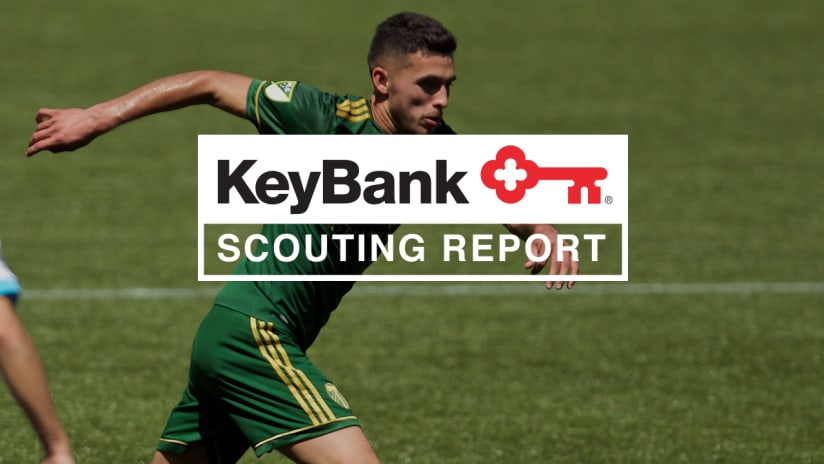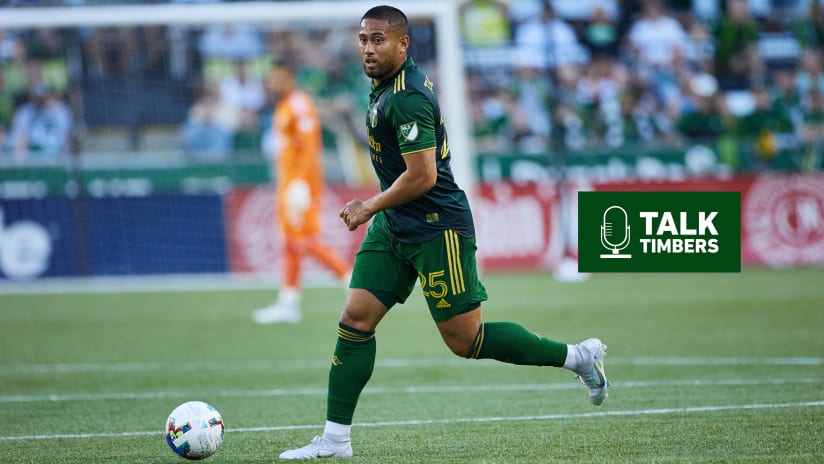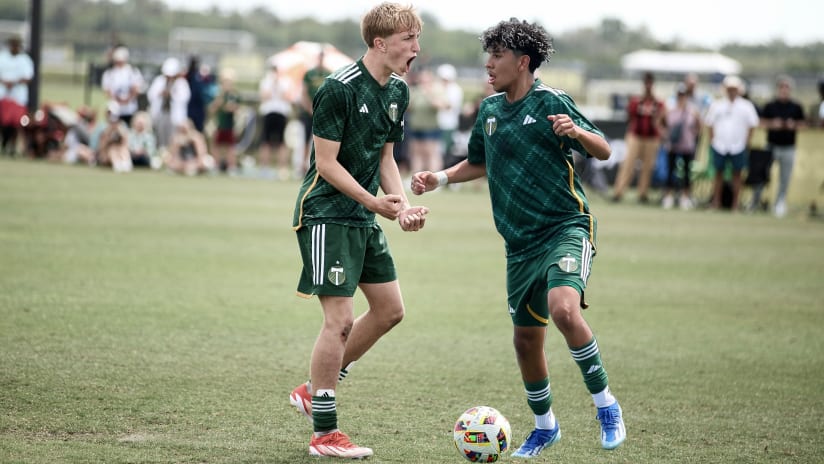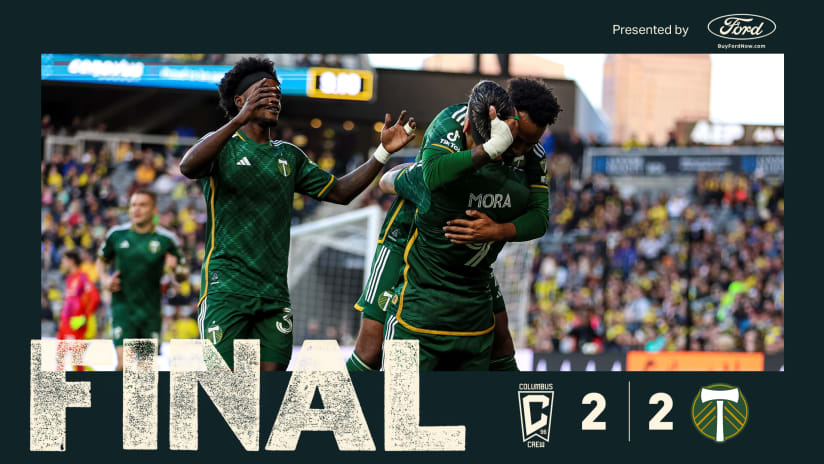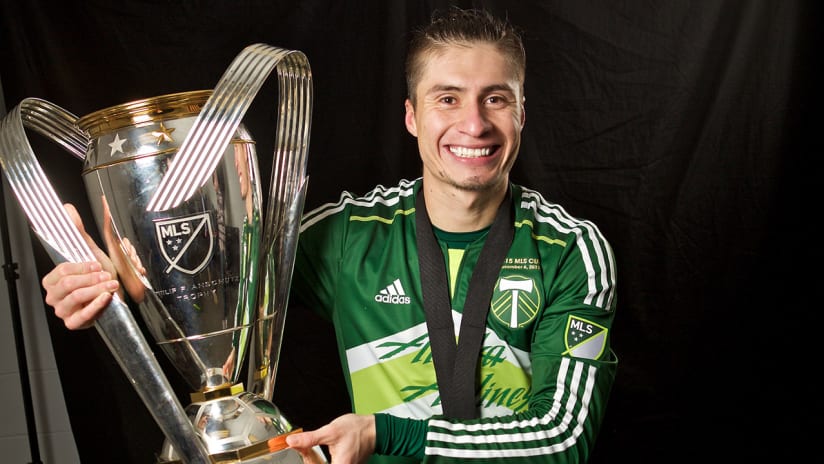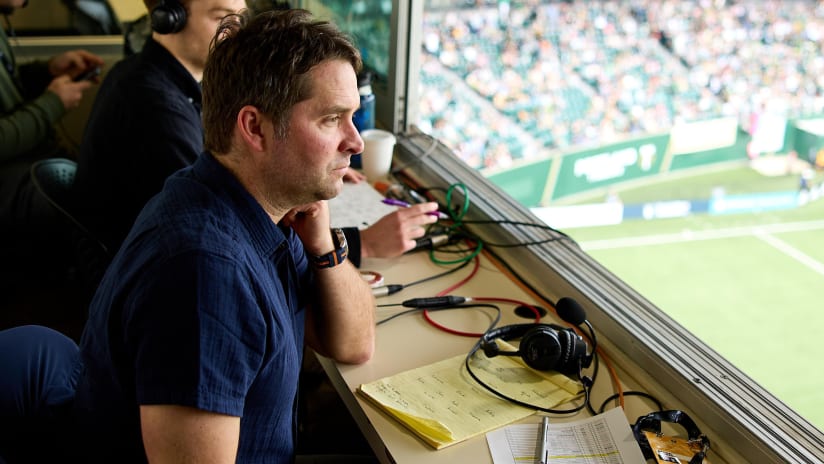Portland Timbers fans would rightly remember their 2015 MLS Cup Playoff meeting with Sporting Kansas City, one where a 2-2 draw after extra time was settled by goalkeepers taking penalty kicks in the 11th round of a tiebreaker shootout. Adam Kwarasey’s conversion prevailed, propelling the Timbers through the playoffs and on to an MLS Cup and allowing a piece of shootout fortune to inspire a drinking spot in the North End’s corridors.
Most of the Timbers’ meeting with Sporting have been far less exciting, though. The last eight regular season matches between these teams have produced as many clean sheets (nine) as goals. Only once over those eight games has a team scored more than one goal in a game, with the Timbers’ 3-0 win at Providence Park in August 2016 coming after both teams lost a man to red card in the first 39 minutes.
Unless those hijinks resurface, expect another close affair when Sporting returns to Portland on Saturday night (7:30pm PT, ROOT SPORTS). When they do, they’ll arrive with the best defense in the Western Conference, and while Peter Vermes’ team will also bring one of the league’s most potent attacks (28 goals scored in 14 games), the three goals Portland have conceded in their last seven matches show they’re also capable of holding teams down.
One key to that on Saturday: Which team can control the ball. It’s the first of our three things to watch - this match’s KeyBank Scouting Report:
1. A strange sort of possession battle
Whenever you see a team with high possession totals (Sporting leads MLS, averaging 57.5 percent per game), you wonder if you can catch them on the counter. That’s the formula Portland head coach Giovanni Savarese used earlier this year against New York City FC. NYCFC is the second-most possession-heavy team in MLS, but when they came to Providence Park, Savarese had his team sit back, absorb pressure, push everything wide, and fight back on the counter. The result, a 3-0 victory, was the first sign Portland was capable of returning to the top of their conference.
When it comes to Sporting and NYCFC, though, there are major differences in the style of possession each employs. New York City head coach Patrick Vieira is happy to trade chances conceded for more danger going forward. It’s a battle he thinks he’ll win, in the long run. Vermes, however, seems to use possession as a defensive mechanism. His team shape is almost never compromised for its attacking concerns, explaining why, although the team leads MLS in shots, only 51 percent (18th out of 23 teams) come from inside the penalty box.
Sporting’s game is not the fluid, constantly moving, stretch-and-exploit approach we typically associate with the term possession soccer. It’s responsible. It’s accountable. It’s even conservative, something that always produces some of the league's best defensive numbers. But, as the history of Portland-Sporting shows, it can also produce a lot of low-scoring results.
2. Where you win the ball
That adherence to scheme explains why, according to Opta, Sporting Kansas City has yet to give up a counterattacking goal all season. Granted, there are eight teams in MLS who have yet to concede on the counter (the Timbers among them), but it’s a grain of evidence that fits the eye test. If you think absorbing SKC’s attack and trying to catch them will lead to chances, think again. They’re not opening themselves up.
That’s why the location Portland wins the ball could prove important. If the Timbers sit back, as they did against New York City, and try to turn their opponents over deep (and, probably, along the flanks), they’ll transition into a set SKC defense that can deal with that challenge. If, however, players like Cristhian Paredes and Andrés Flores can be opportunistic higher up, the Timbers will have brief windows where they can catch Sporting's defense before it has a full arsenal of help.
In fairness, similar things could be said before any game. The fact that Sporting is so dedicated to goal prevention, however, makes those opportunities more important. It’s highly unlikely that, through their approach, Sporting is going to leave opportunities for you. Instead, you’ve got to be more conscious of challenging for the ball in places that can lead to chances.
But – and this, perhaps, should have been key No. 1 – there's the absence of Diego Chara. Chara picked up his season’s fifth yellow card last Saturday against the LA Galaxy, meaning he’ll be absent as the Timbers try to extend their seven-game unbeaten run. Unfortunately, Portland is 0-11-6 over their last 17 matches without their industrious midfielder, a mark that includes two losses this season. If Saverese needs answers this week in midfield, he’ll have to find them without Chara, who would be the team's best at pursuing those midfield turnovers.
3. Who gets the call up top
How Savarese envisions breaking the Sporting defense may dictate who gets the start at striker. If the team is going to rely on counter-attacking play and hope to get its striker isolated on one of Sporting KC’s all-league defenders (Matt Besler and Ike Opara), Samuel Armenteros might be in line for his third straight start. With his two-goal performance in Colorado, he showed what he can do in similar scenarios, and in making the run that opened up the Galaxy head of last week’s goal, Armenteros proved he can be a factor even when he’s not touching the ball.
If the game is going to be a more grinding affair, though, this might be the time to bring Fanendo Adi back into the lineup. Both Besler and Opara can be beaten by pace, but if Sporting plays the style it wants, neither will be situations to be exposed. In that case, a player who can win a physical battle or demand the type of attention that can open up room may be the better call. In different way from Armenteros, Adi can also be a major factor when he doesn’t have the ball.
Between Portland’s two first-choice strikers, we’ve seen distinctly different styles, and from those styles come slightly different approaches. What the team needed against the Galaxy and Colorado, it might not need against an setup like Sporting’s. And in that difference could be Adi’s chance to get another run-out.

